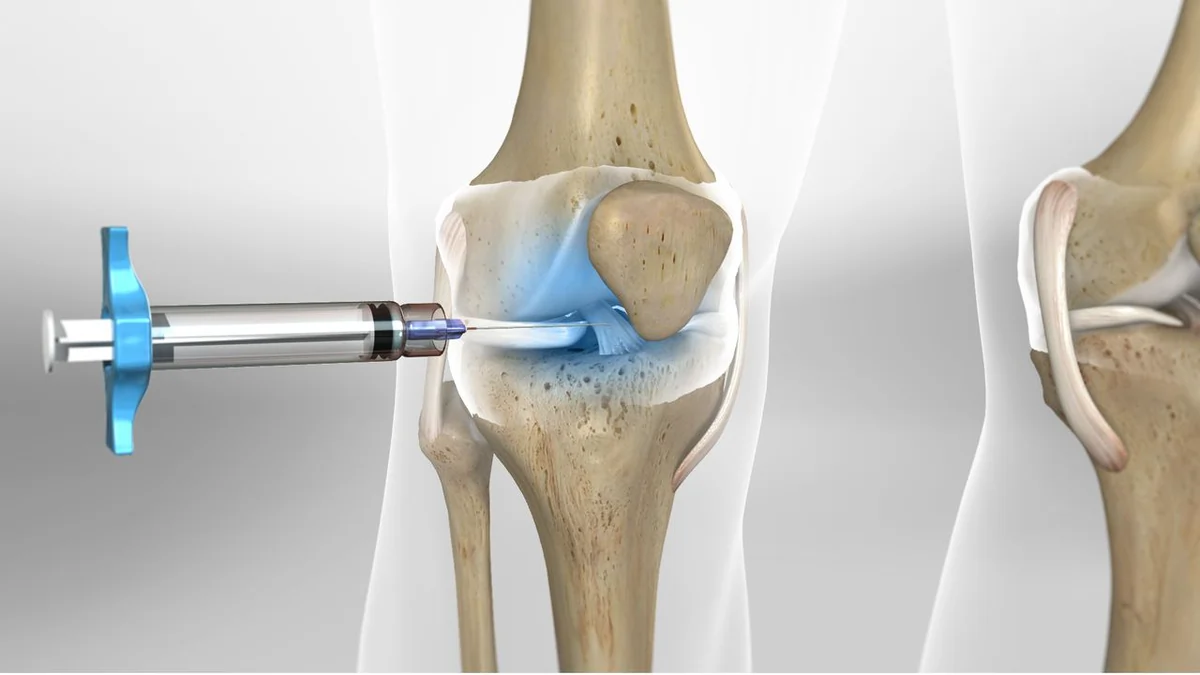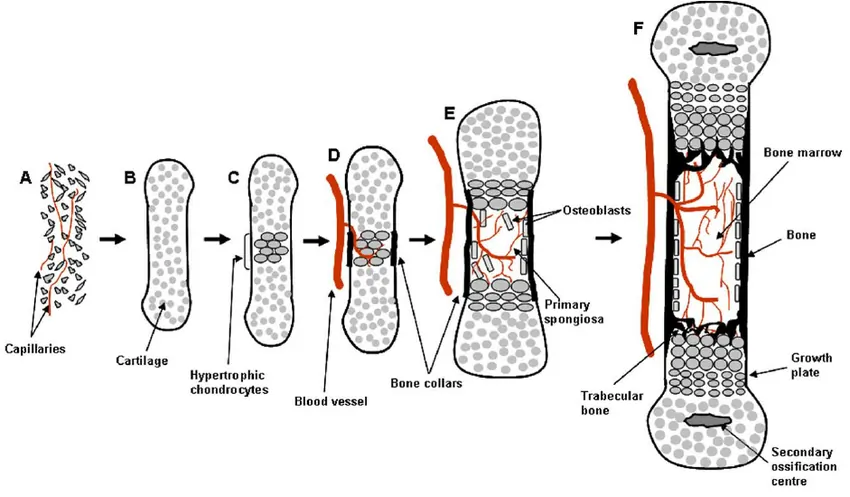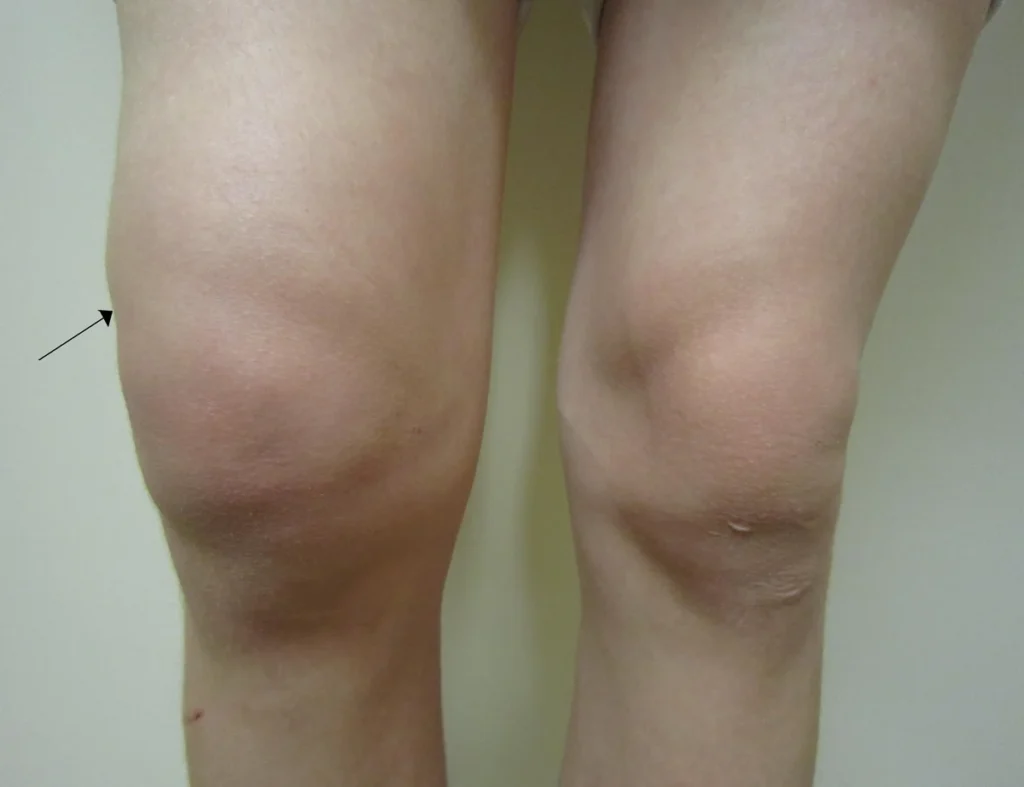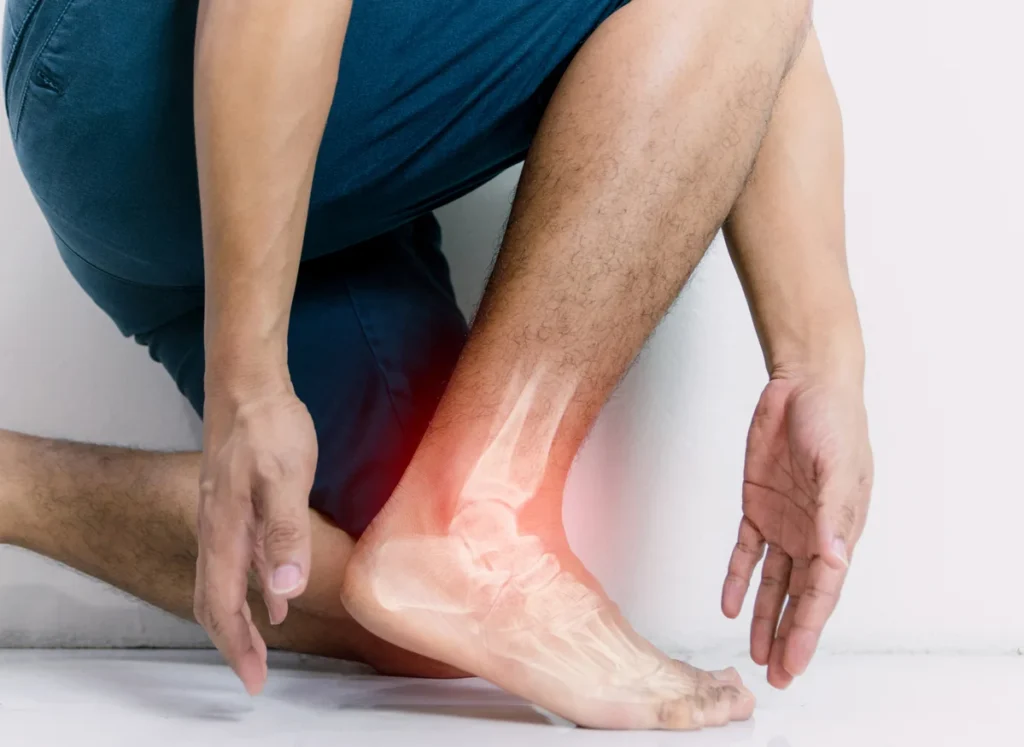How is Gel or Hyaluronic Acid Used in Treating Knee Osteoarthritis and Joints?
In this article by the Limb Lengthening Center of Iran, we will discuss knee gel injections and the necessary care afterward. In a normal joint, there is a layer of cartilage that aids in smooth joint movement and allows the thigh and calf bones to glide easily over each other. In knee osteoarthritis, the cartilage deteriorates, thins, and eventually disappears. This cartilage degradation leads to friction between the thigh and calf bones, causing the formation of small bones and fluid accumulation in the joint.

Hyaluronic Gel Injection
Hyaluronic acid, naturally present in joints and other body parts, helps in the smooth movement of joints. Therefore, in some cases where knee osteoarthritis is not severe, doctors recommend hyaluronic gel injection as a substitute between joints.
Function of Hyaluronic Gel After Knee Injection
The gel injection in the knee acts as a lubricant, making it easier for the thigh and calf bones to glide over each other. It also reduces inflammation, pain, and joint swelling. However, it’s important to note that gel injection only soothes inflammation and swelling in the knee and does not have the capability to regenerate cartilage or cure osteoarthritis.
Effect of Gel Injection on Knee Osteoarthritis
For some people with arthritis, gel injection in the knee may work better than older methods like taking painkillers or cortisone injections. Arthritis is an inflammatory joint disease that causes cartilage destruction, joint pain, and stiffness.
Hyaluronic gel injection seems to work better for some individuals. However, it has less impact and improvement on older individuals with severe arthritis.
Usually, after a hyaluronic acid gel injection, the joint should be rested for at least 48 hours, and avoid standing or walking for extended periods.
Generally, if effective, the knee gel injection should be repeated every six months.
Side Effects of Knee Gel Injection
Like all medications, gel injections have side effects. The doctor decides to prescribe gel based on the patient’s medical history and condition. The most common side effects include pain at the injection site, fluid accumulation in the knee, and allergic reactions. Generally, if you are allergic to products based on hyaluronic acid, you should use other methods. The rate of allergic reactions to the gel is about 2 to 3 percent.
Measures and Care Needed After Knee Gel Injection
After a knee gel injection, it’s recommended to avoid intense activities and vigorous sports such as football, volleyball, running, jumping, standing for long periods, weight-bearing, or long-term activities for 48 hours after the injection.
If necessary, undergoing physiotherapy programs prescribed by a doctor is essential.
Care After Knee Gel Injection
In the initial days following the injection, walking should be gentle and light, and lifting heavy objects should be avoided.
Using dietary supplements such as curcumin and the natural spice turmeric can also be beneficial.
Applying cold and hot compresses to the injection site can help soothe the joints.
Performing stretching exercises gently and specific aerobic exercises with the guidance of a sports medicine coach can be helpful.
Weight reduction is always beneficial.
Therapeutic massages can also aid in improving the condition.
Using orthopedic shoes and insoles can be helpful.
If you experience increased pain and joint swelling after the injection, inform your doctor immediately.
If your joint becomes red and hot after the injection, you should also notify your doctor.
When Should Gel Injection Not Be Performed?
- Infection: If there is an infection in the joint or near the area where the injection is to be performed, or if you have a skin condition, gel injection is not recommended.
- Circulatory problems: If you have circulatory problems in your legs, gel injection is not recommended.
- Children and adolescents under 18: Gel injection is not recommended for individuals under 18 years of age.
- Swelling or blood clotting in the leg: If you have significant swelling in your legs or feel that blood is clotting in your legs, inform your doctor immediately.
- Allergy: If you have previously had an allergic reaction to products based on hyaluronic gel, you should not undergo gel injection.
- Blood thinners: If you are taking blood-thinning medications like Warfarin, inform your doctor.
- Pregnancy and breastfeeding: Hyaluronic acid has not been tested in pregnant or breastfeeding women. If you are pregnant, planning to become pregnant, or are breastfeeding, it is important to inform your doctor.

To make an appointment or get an online consultation with Dr. Nader Motallebi Zadeh, Limb lengthening surgeon, proceed here.
Thank you for reading the article on Knee Gel Injection: Necessary Care Afterward. Please feel free to ask us any questions you have about knee gel injections and the subsequent care required.



